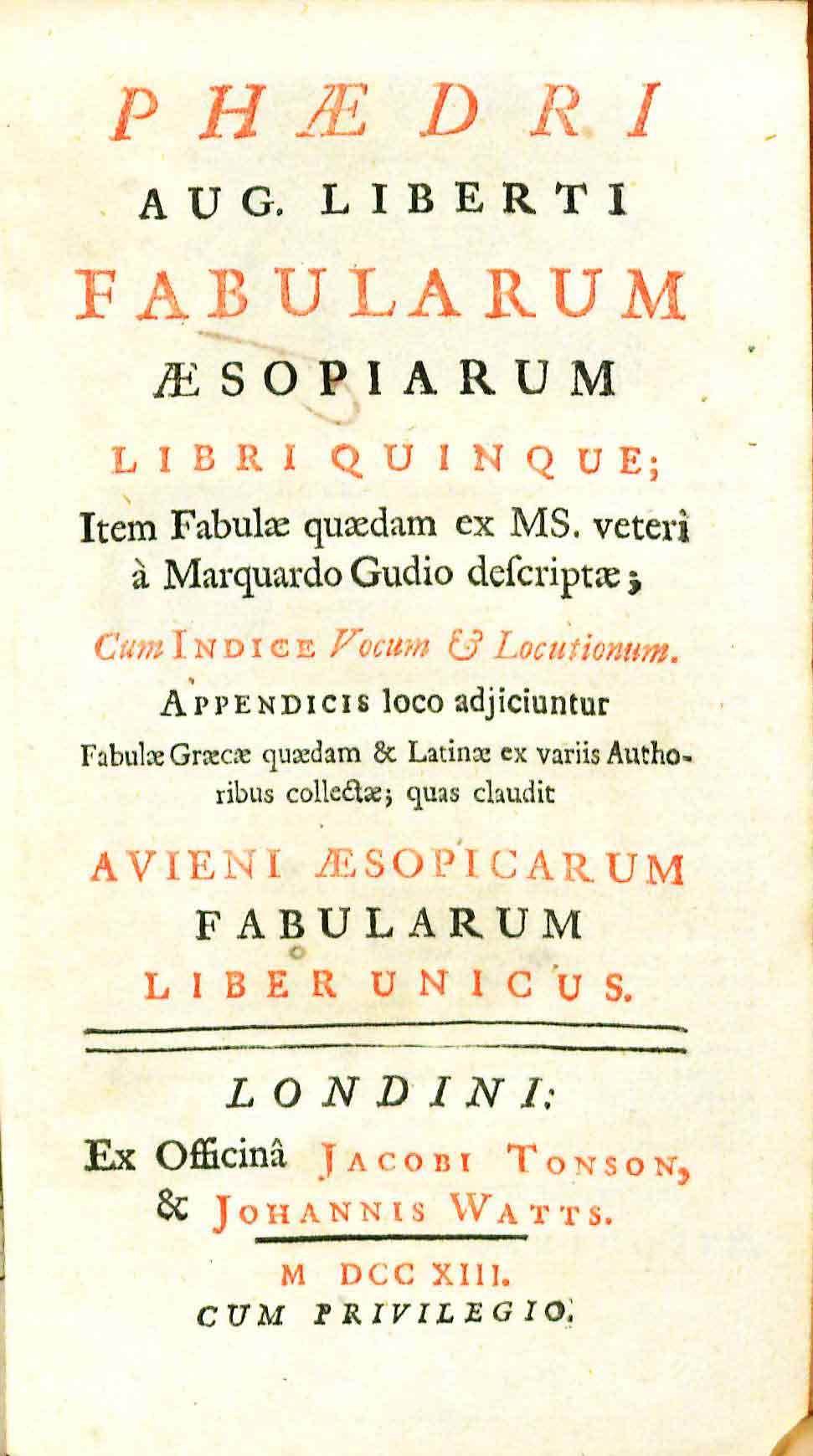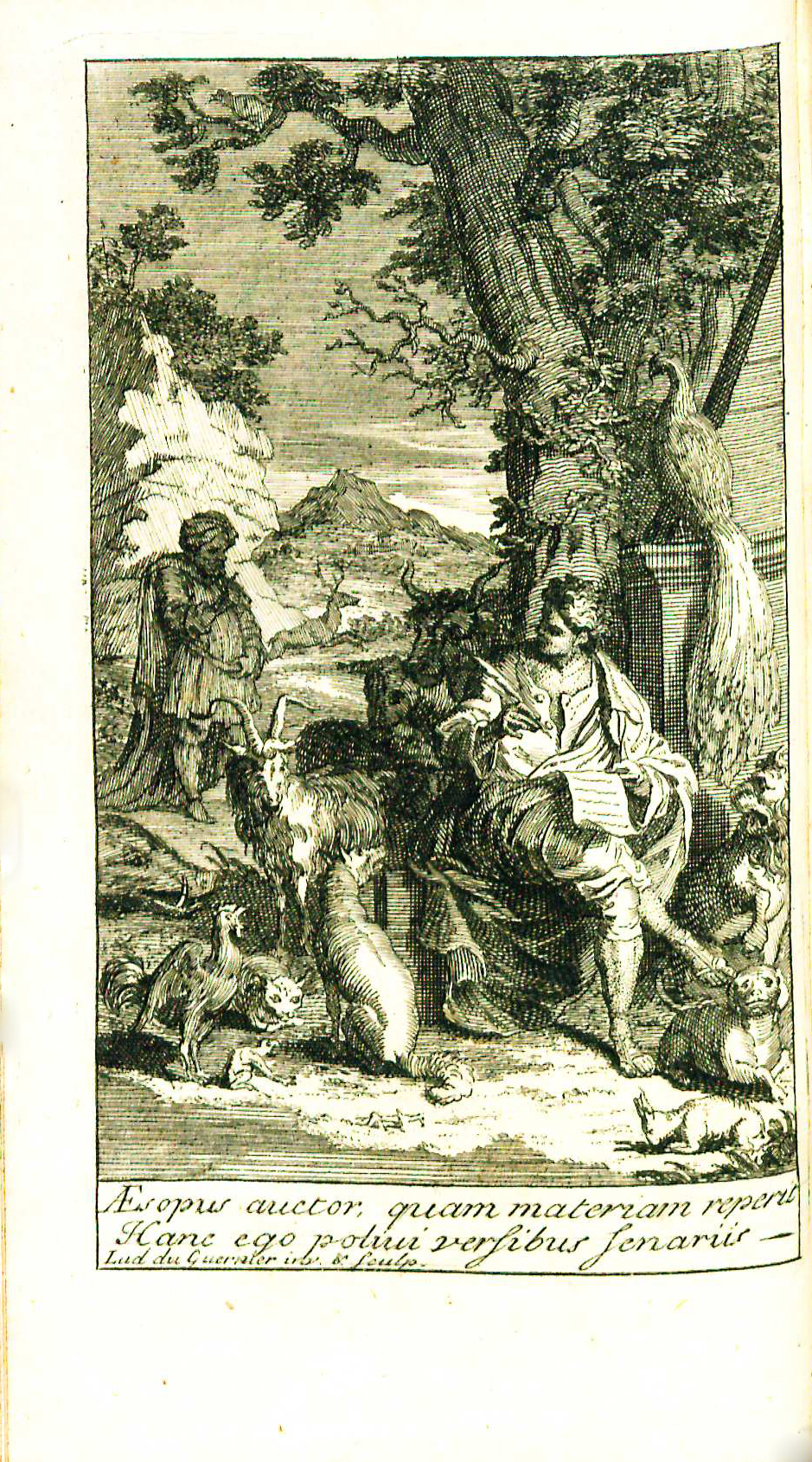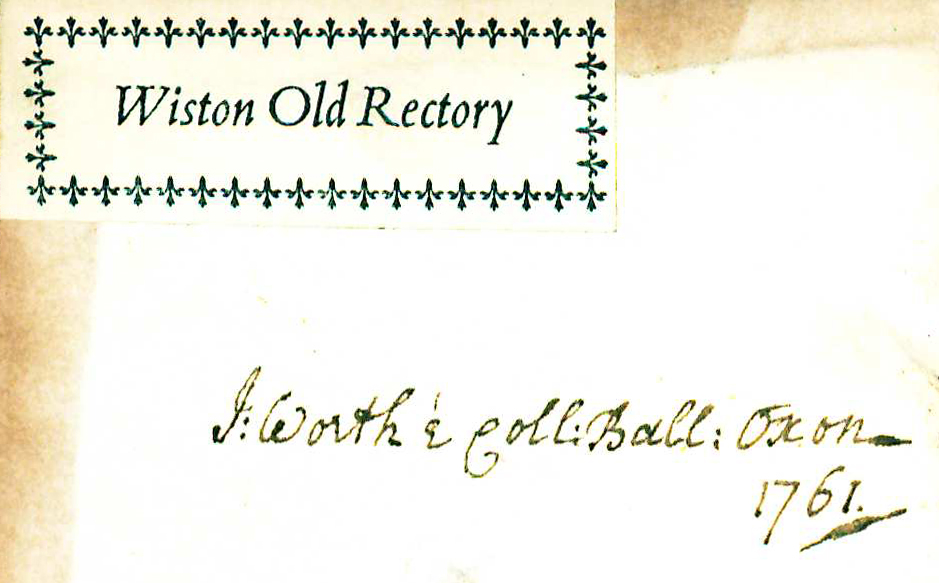Difference between revisions of "Phædri Aug. Liberti Fabularum Æsopiarum Libri Quinque"
Ammorris01 (talk | contribs) |
|||
| Line 31: | Line 31: | ||
View the record for this book in [https://catalog.swem.wm.edu/law/Record/3679297 William & Mary's online catalog]. | View the record for this book in [https://catalog.swem.wm.edu/law/Record/3679297 William & Mary's online catalog]. | ||
==See also== | ==See also== | ||
| + | <div style="overflow: hidden;"> | ||
*[[George Wythe Room]] | *[[George Wythe Room]] | ||
| + | *[[Jefferson Inventory]] | ||
*[[Wythe's Library]] | *[[Wythe's Library]] | ||
| + | </div> | ||
==References== | ==References== | ||
| Line 39: | Line 42: | ||
[[Category:George Wythe Collection at William & Mary's Wolf Law Library]] | [[Category:George Wythe Collection at William & Mary's Wolf Law Library]] | ||
[[Category:Latin Literature]] | [[Category:Latin Literature]] | ||
| + | [[Category:Thomas Jefferson Randolph's Books]] | ||
[[Category:Titles in Wythe's Library]] | [[Category:Titles in Wythe's Library]] | ||
Revision as of 17:47, 14 September 2015
by Phaedrus
| Phædri Aug. Liberti Fabularum Æsopiarum Libri Quinque | |
|
Title page from Phædri Aug. Liberti Fabularum Æsopiarum Libri Quinque, George Wythe Collection, Wolf Law Library, College of William & Mary. | |
| Author | Phaedrus |
| Editor | Michael Maittaire |
| Published | Londoni: Ex officinâ Jacobi Tonson, & Johannis Watts. |
| Date | 1713 |
| Language | Latin |
| Pages | [16], 60, [116] |
| Desc. | 12mo (15 cm.) |
| Location | Shelf J-4 |
Phaedrus is largely responsible for the increased use of and respect for fables, which had previously been used only in adjunction to other genres. Phaedrus' satire of politicians, writers and other public figures led to serious criticisms of his work, which were followed by his own retorts.[3] Phaedrus noted in his third book’s prologue that fables were invented so slaves could speak what could not be said openly.[4] As a freedman, he did not have to worry about incurring the wrath of his master, and openly advised and criticized the injustices of Roman life. Interestingly, Phaedrus coined the expression “adding insult to injury,” (iniuriae qui addideris contumeliam).[5]
This work contains the extant portions of Phaedrus’ fifth book.
Evidence for Inclusion in Wythe's Library
Listed in the Jefferson Inventory of Wythe's Library as Phaedrus. 12mo. and given by Thomas Jefferson to his grandson Thomas Jefferson Randolph. The precise edition owned by Wythe is unknown. George Wythe's Library[6] on LibraryThing indicates this without selecting a specific edition. The Brown Bibliography[7] lists the 1713 edition published in London based on one of the copies of Phaedrus Jefferson sold to the Library of Congress.[8] The Wolf Law Library followed Brown's suggestion and purchased the 1713 edition.
Description of the Wolf Law Library's copy
Bound in contemporary sprinkled calf with spine gilt. Inscribed "J. Worth & Coll. Ball. Oxon, 1761" and includes the bookplate of Wiston Old Rectory, both on the front pastedown. Purchased from Charles Cox Rare Books.
View the record for this book in William & Mary's online catalog.
See also
References
- ↑ "Phaedrus” in The Oxford Companion to Classical Literature, ed. by M.C. Howatson (Oxford: Oxford University Press, 2011).
- ↑ " Phaedrus, Gāius Iūlius " in Oxford Dictionary of the Classical World, ed. by John Roberts (Oxford: Oxford University Press, 2007).
- ↑ Ibid.
- ↑ "Phaedrus” in The Oxford Companion to Classical Literature.
- ↑ Ibid.
- ↑ LibraryThing, s. v. "Member: George Wythe," accessed on November 14, 2013, http://www.librarything.com/profile/GeorgeWythe
- ↑ Bennie Brown, "The Library of George Wythe of Williamsburg and Richmond," (unpublished manuscript, May, 2012) Microsoft Word file. Earlier edition available at: https://digitalarchive.wm.edu/handle/10288/13433
- ↑ E. Millicent Sowerby, Catalogue of the Library of Thomas Jefferson, 2nd ed. (Charlottesville: University Press of Virginia, 1983), 4:463 [no.4373].


